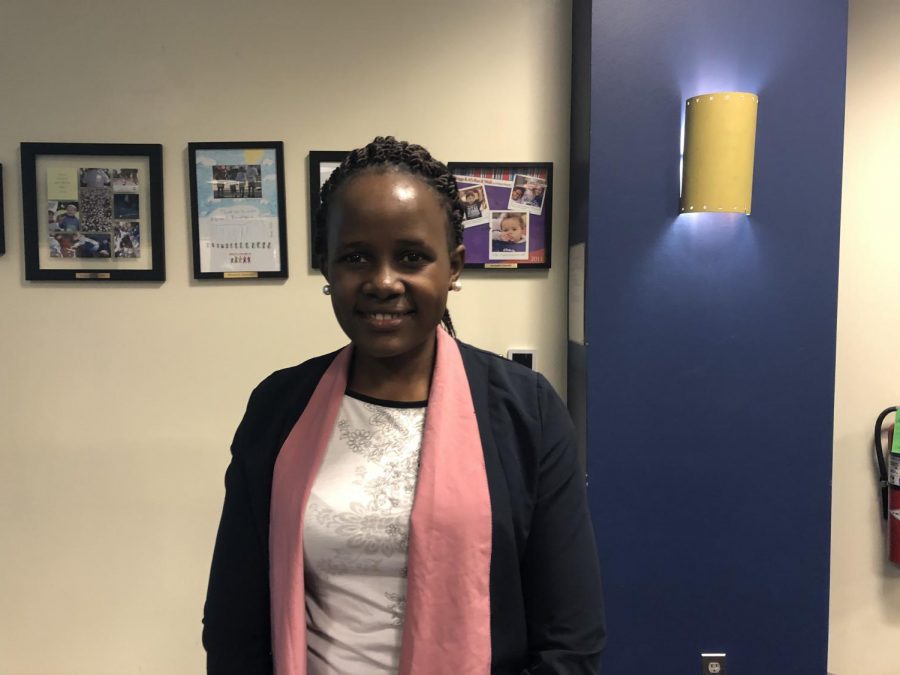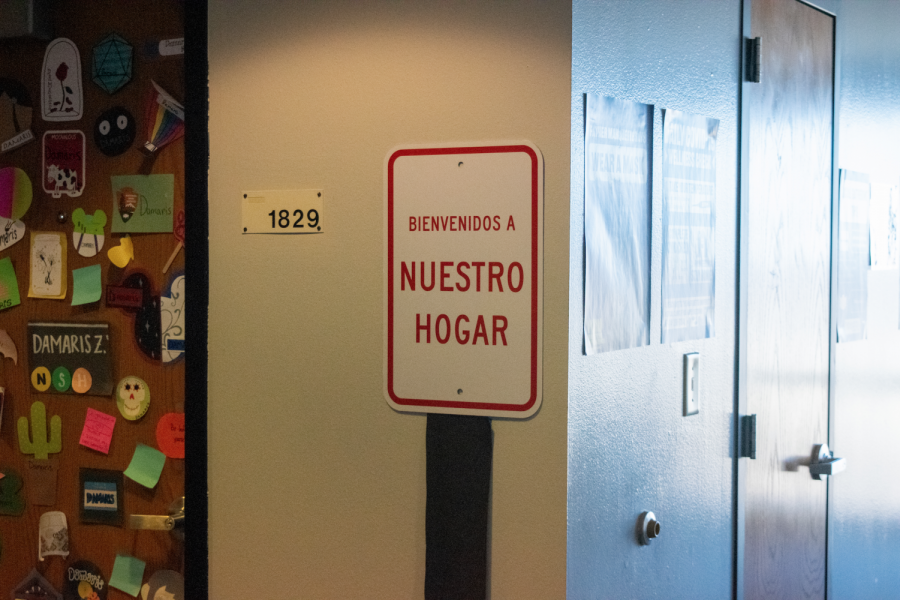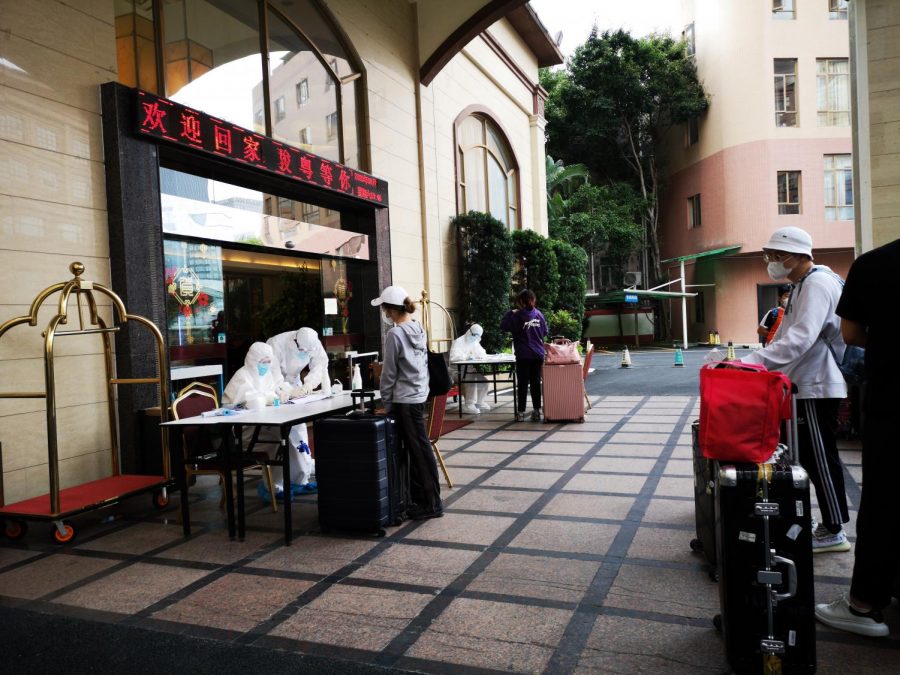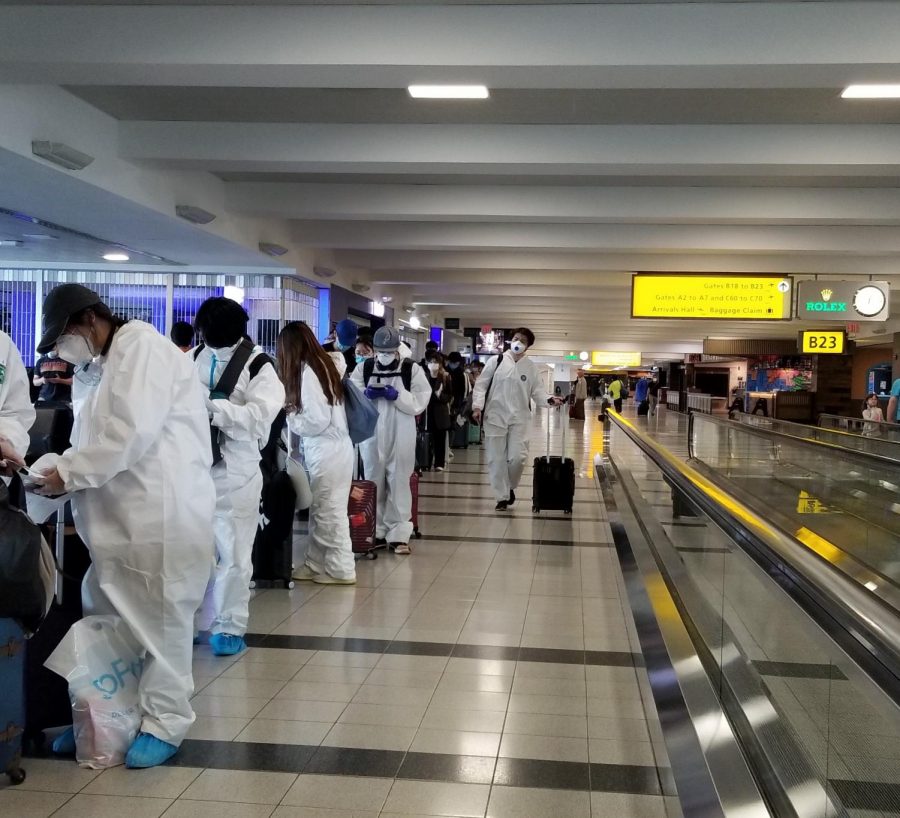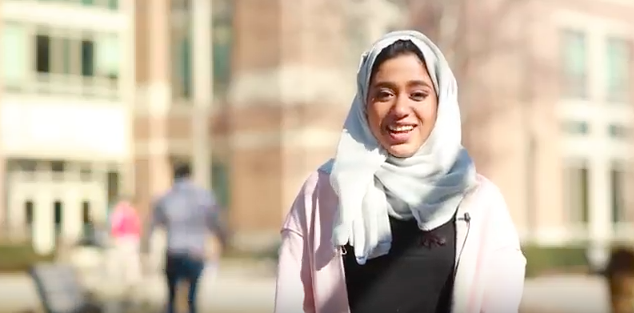Mireille Twayigira, physician and Jesuit Refugee Service refugee education advocate, gave her talk “Full of Hope: One Refugee’s Journey of Survival, Resilience, and Education” April 9.
The Office of International Education and JRS hosted the talk as a “Soup with Substance” event.
Twayigira said she when she was about 6 years old, she had her first interaction with education in a refugee camp in Zambia.
“That was the first time I was introduced to a chalkboard … a piece of chalk and a teacher,” Twayigira said. “And for me, that was the beginning of my journey as a young refugee.”
Twayigira said it’s not the reality for most young refugees to go to school at such a young age. She said only about 61 percent of refugees have access to primary schools, about 23 percent have access to secondary schools and about 1 percent have access to university education. Twayigira said about 4 million school-age children are out of school.
“(This is) not because of lack of potential, but (rather) lack of opportunity,” Twayigira said. “Deep down I really hope that there is hope. I think that with knowledge, you get to see what’s happening and what can I do … (and) what proper actions to take.”
She said she thinks two reasons for this gap are the idea that education is a long-term developmental solution. She said only 2 percent of government aid goes into education.
“But I really believe we can all chip in, not just financially, because policies can change,” Twayigira said. “But with advocacy, … I think we can bridge that gap.”
Anjali Patel, a sophomore in the College of Arts & Sciences, said she wanted to learn and hear more about Rwanda and refugee issues.
“I think it’s really good, especially with the issues we face here at Marquette like with diversity sometimes,” Patel said. “I think it’s just important to see what has happened around the world and kind of get out of this bubble we’re in sometimes.”
Emraan Ansari, a senior in the College of Arts & Sciences, said he thinks it is great to see the outreach from the university to put on an event like this and work to educate itself and the students attending Marquette.
Hailey Wellenstein, a senior in the College of Arts & Sciences, said she appreciates when people come to campus and bring light to international issues.
“I also think it’s a more impactful experience when you hear it from someone that’s experienced it firsthand, rather than through a professor who’s also talking about it through someone else,” Wellenstein said. “Firsthand experiences also give you a different perspective to speak about it and just to be a knowledgeable world citizen.”
Twayigira said young refugees have hopes and dreams like the rest of us.
“Most of the young refugees want to help … they were expressing how they have seen how their countries have been hurt by conflict and they want to be able to contribute and they see that education will give them that ability to contribute to the good of their own countries,” Twayigira said.
Twayigira said she spent 11 years living in refugee camps. She left Rwanda at the beginning of the 1994 Rwandan genocide and went to a refugee camp in the Congo. She said after her mother passed away in 1995, her grandparents took care of her. When a war began in the Congo, Twayigira said they started a long journey through the Congo, walking day and night, often without eating. She eventually ended up in Malawi where she was able to attend boarding school with assistance and support from a friend of her grandfather.
After graduating from secondary school, she tested as one of the top three girls in the country on the national high school exam.
She said at the ceremony for her testing, the Chinese ambassador offered her a scholarship to study in China. She said two problems stood in her way: she did not have a passport and she was a refugee.
“People came behind me and really supported me,” Twayigira said. “They fought for me with the issue in the parliament, you know, ‘What should we do? Should we let her go as a Malawian (or) not?’”
She said in the end, she was able to become a Malawi citizen and go to China. She completed language school and then medical school in Shenyang.
“When I went to medical school, I realized at that time (that) I had a purpose,” Twayigira said. “I began to appreciate how I saw my life. I began to see hope in my own story.”
She said she speaks at different schools in Malawi.
“I try to raise hope, trying to encourage other young Malawians, refugees included, to see that … there is hope,” Twayigira said, adding that education is not only for the individual, but also for the community.
Twayigira said she feels lucky to have been able to attend school from the ages of 6 to 24.

